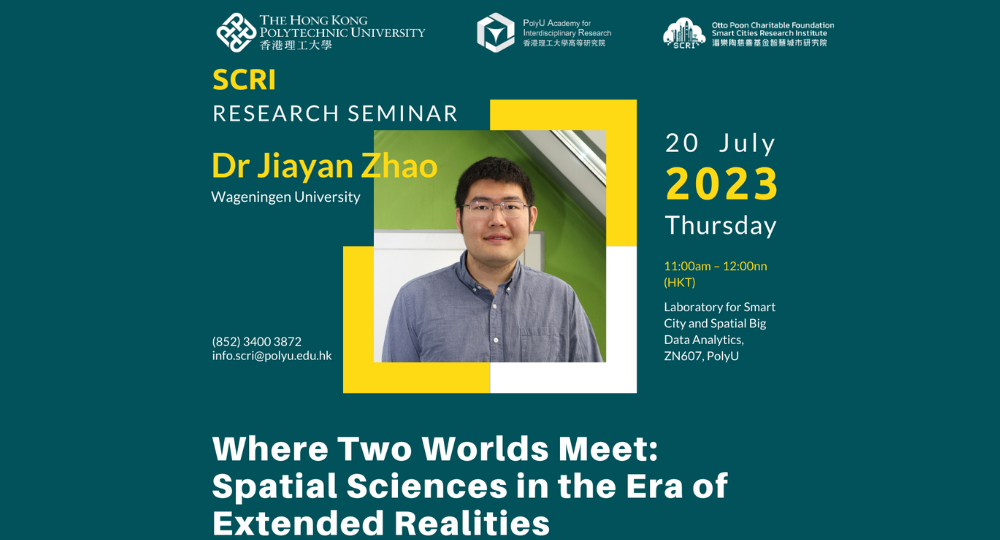SCRI Research Seminar: Where two worlds meet: Spatial sciences in the era of extended realities
Seminar

-
Date
20 Jul 2023
-
Organiser
Otto Poon Charitable Foundation Smart Cities Research Institute
-
Time
11:00 - 12:00
-
Venue
ZN607
Summary
Title
Where two worlds meet: Spatial sciences in the era of extended realities
Abstract
Empowering geoinformation with eXtended Realities (XR) has evolved as one of the popular research agendas that help users transcend spatial and temporal barriers to experience rather than merely observe. Leveraging the rich sensory fidelity and truly 3D enabled interface, first hand, place based immersive experiences are a promising alternative or enhancement to spatial problem solving within real world contexts. The scope of XR in spatial sciences is broadened further with the recent advance of 3D environmental sensing techniques (such as LiDAR and Structure from Motion). We can now bring geospatial data to life by allowing users to immerse in a digital simulation of real world or designed systems, opening up unprecedented opportunities for research and development. My talk will provide a brief account of these research streams, with a focus on my previous and ongoing projects, to demonstrate how enabling technologies like XR can play a major role in future spatial sciences. Prospective research ideas will also be briefly discussed with examples of their implications for emerging research themes in the European context.
Speaker Bio
Jiayan Zhao is an Assistant Professor of Geo information Science at Wageningen University & Research. He received his bachelor’s degree in Geological Engineering from Central South University (2014), and an MA in Geography from the State University of New York at Albany (2016). He holds a Ph.D. from the Pennsylvania State University (2020) for his research on spatial learning in virtual environments. Jiayan is broadly interested in immersive technologies and their application in human space interaction, spatial cognition, environmental data visualization, digital twins, and place based education.


